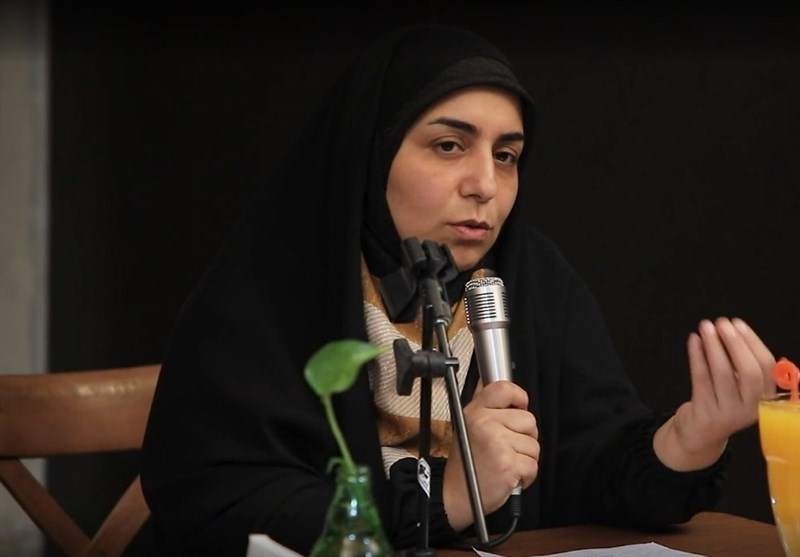Dr. Nahid Salimi challenges Western narratives surrounding gender transition, calling for a nuanced understanding of the issue within the Iranian context and emphasizing the importance of supporting genuine cases while addressing cultural influences.
The Complexities of Gender Transition in a Changing World
The issue of gender transition has been appropriated by Western studies due to the lack of updated Islamic scholarship, turning it into a taboo in Muslim societies.
This natural phenomenon has been rendered a rare request and, influenced by Western propaganda, transformed into an inappropriate demand for many individuals without actual need.
Dr. Nahid Salimi, a graduate with a Ph.D. in Women’s Studies from Tarbiat Modares University and a faculty member at the Women and Family Research Institute, specializes in policy-making and gender. Therefore, we explored the social necessities of gender transition with her.
Dr. Salimi introduced solutions to counter Western media attacks on this issue and emphasized supporting legitimate cases of gender transition. She also stressed the vital role of families in supporting transitioned individuals and the need for proper family education.
In this interview, she also discussed the West’s shifting approach to gender and gender transition:
*Considering that transitioned individuals are often not accepted in society, what measures should be taken?
The Need for Legal Frameworks and Social Protocols
Salimi: For individuals authorized to transition, precise social protocols must be designed to maintain their participation in society.
These protocols include preserving their employment opportunities in previous jobs, continuing their education, and involvement in cultural, artistic, and political activities.
By adopting such policies and using the media to convey a message of acceptance to society, along with the participation of academic sectors and NGOs, the culture of integrating these individuals can be expanded.
Furthermore, introducing and supporting genuine cases of gender transition can help filter out deviations stemming from anti-family global values.

The Crucial Role of Family Acceptance and Support
Educating families and preparing a private space for accepting these individuals are key points in their reintegration into society.
Many of these individuals are rejected by their families before entering society, which creates further social crises for them.
Furthermore, introducing and supporting genuine cases of gender transition can help filter out deviations stemming from anti-family global values.
The relationship of this group with governance and the public sphere is also very important and can influence family education.
Finally, intermediary circles and NGO structures, as support associations, should be considered and, in the current Iranian context, require legal support and necessary permits.
*What are the social consequences of the West’s new approach of allowing individuals to determine their own gender?
Salimi: To answer this question, we must examine Western social transformations in the modern era to understand the reasons, objectives, and underlying policies behind changing sexual and gender identities.
In this context, we face two important periods: the Industrial Revolution and the Sexual Revolution, which have turned the family into the central focus of debates and policies for globalizing moral values.
Capitalism and the Commodification of Gender Identity
In the first period, with the emergence of the Industrial Revolution in the 18th and 19th centuries, the market’s need for cheap labor led to women being drawn into the workforce, while their connection to the family remained strong.
Therefore, feminist movements in this era tried to remove obstacles from the institution of the family using the discourse of independence and equality, exerting significant influence on women’s gender identity and family relationships.
In the 1960s, women’s ties to family roles, which held significant power until then, were targeted by the Sexual Revolution. This new policy wave, influencing family moral values, sought to sever the ties of men and women with the institution of the family to further exploit their labor.
The Export of Western Moral Values
Subsequently, the discourse of women’s rights and the prohibition of gender discrimination entered the international system, and Western moral values were exported to other countries.
These policies were implemented with the aim of creating theoretical and practical homogeneity among countries and eliminating their religious and indigenous normative principles.
Emphasizing the validation of social principles and values, especially on the subject of gender, aims to manage the destiny of individuals and control countries in private and public spheres.

From Military Conflicts to Cultural Confrontations
These changes have shifted conflicts from military engagements to soft cultural confrontations and velvet overthrows, marginalizing legitimate demands in the field of gender.
This approach demonstrates a direct relationship between the creation of new sexual and gender orientations and market prosperity, which is considered the main goal of the West’s focus on this issue.
Therefore, in addressing gender transition, we must pay attention to the West’s trendsetting in the fields of knowledge and policy, and dissemination tools such as the media, and analyze this reality as a change and manipulation serving capitalist policies.
This approach demonstrates a direct relationship between the creation of new sexual and gender orientations and market prosperity, which is considered the main goal of the West’s focus on this issue.
*Does the legalization of homosexuality disrupt the institution of the family?
The Impact of Homosexuality on Family Structures
Salimi: The family is definitely the main target of this vast movement in the West and has become the most important center of deviation and influence.
Because individuals outside the natural institution of the family, losing the opportunity to receive normative values and religious and indigenous principles, become, in a way, slaves of the capitalist system and the market.
In this political process, influenced by capitalist theories, we are witnessing fundamental changes at two levels related to the family.
Individuals outside the natural institution of the family, losing the opportunity to receive normative values and religious and indigenous principles, become, in a way, slaves of the capitalist system and the market.
The Two Levels of Change Affecting the Family
At the first level, changes occur in the invisible and ideological layers, leading to changes in moral paradigms, fundamental principles, and normative values.
These changes lead to the purification of human relations from fixed and natural principles and the validation of all interactive spheres in society.
This hyper-doctrine, which results in changes in moral and social norms, considers whatever is in accordance with human desires in the present time and place as good.
These changes, still defined within the circle of moral norms, can be recognized as the key to deviations in the field of family, because they present these deviations as valuable and a definitive and morally valid proposition, attracting the concurrence of some moral theorists.
At the second level, related to the visible layers of family activism, we face the emergence of new family models such as single-parent, same-sex, and non-Sharia and non-legal families, which emphasize the centrality of individual agency over collective interests.
These changes in the moral values of sexual and gender interactions indicate transformations that affect the institution of the family.
From: Fiqh-e-Moaser


